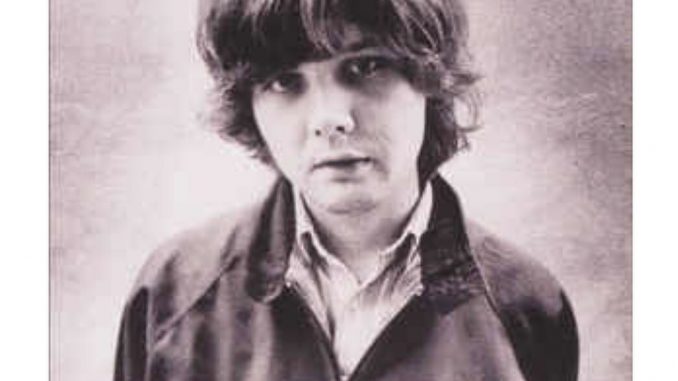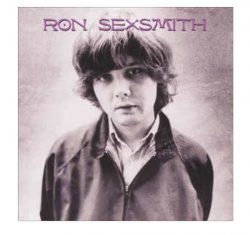
A wonderful and perhaps career-defining early offering from an artist much appreciated by his peers but dogged by a lack of commercial success.
 A classic is best defined as something that is judged over a period of time to be of the highest quality and outstanding of its kind. All of which is why the phrase instant classic is nonsense and it is not unusual for a so-called instant classic to ultimately pale over time. A classic car is reckoned to be over 20 years of age so an album made 25 years ago in a genre that could be said to be no more than 60 years old surely qualifies.
A classic is best defined as something that is judged over a period of time to be of the highest quality and outstanding of its kind. All of which is why the phrase instant classic is nonsense and it is not unusual for a so-called instant classic to ultimately pale over time. A classic car is reckoned to be over 20 years of age so an album made 25 years ago in a genre that could be said to be no more than 60 years old surely qualifies.
It also qualifies because it is brilliant.
Sexsmith has a talent for incisive wordplay and memorable melodies delivered with wit and an instantly recognisable voice. Having started to research the subject it wasn’t long before I started reading the same anecdotes again and again – Ron Sexsmith the, ‘human jukebox’, the, ‘master pun maker’, and things of that order. The list of his admirers is lengthy as is that of those who have covered his songs
Allmusic describes Sexsmith as, ‘A wide-eyed innocent’, and describes this release as marrying, ‘The wonder of Jonathan Richman with the darker atmosphere of a Daniel Lanois. Superficially the songs are so sparsely childlike that you’re tempted to wonder if Sexsmith is either a master of affectation or some kind of idiot savant’.
Richman, good as he is has the feel of one man’s meat, whereas Sexsmith has a potentially wider appeal. However, listen to this interview, which unlike many is both interesting and lucid, and I feel sure you will agree that Sexsmith is neither childlike, affected, nor an idiot savant.
Another Allmusic article doesn’t quite so blatantly miss the point and describes our hero as a,
‘Gifted songwriter …. by turns earnest and playful… He has a talent for catchy but graceful melodies that’s matched by his skills as a lyricist, drawing compact sketches of love and the trials of everyday life that are heartfelt and compassionate even when he’s being witty and warm without becoming overly sentimental’.
Ron Sexsmith, the album (his second but first major release), fell to the ground in 1995 pretty much fully formed with a range of interesting and engaging songs – you could quite easily say ‘everyone’s a gem’. Rather than work through them all perhaps it’s best to pick out a couple of shining examples. First though, here’s Sexsmith’s description of the writing process.
‘Lyrics are the hardest part for me. At the same time, I don’t think I write any songs where you’ll be scratching your head wondering what I’m singing about. I do think there are a lot of songwriters who get away with murder when it comes to lyrics. All that stream of consciousness stuff … it drives me nuts! I get the impression they’re just singing stuff off the top of their head, but it’s much harder to write the kind of lyric that Johnny Mercer or Cole Porter would write. You know, where there’s no wasted words’.
It’s remarkable to think that he finds it hard when the results are so accomplished but I wonder if that might go some way to describe the process of ‘craftsmanship’?
‘Secret Heart’, offers a nuanced description of the man who just can’t say it,
‘Secret heart / What are you made of? / What are you so afraid of? Could it be three simple words / Or the fear of being overheard? / What’s wrong? / Let her in on your secret, heart’
There is a comma and a pause between the final two words which give it a slightly ambivalent meaning. It’s an uncomplicated production, starting with a few simple guitar chords although somewhere in the background – what is it – a glockenspiel, chimes, I’m not sure but it adds a little musical mystery whilst letting the vocals take the front of stage with a fresh take on a subject as old as can be.
‘This very secret you’re trying to conceal / Is the very same one you’re dying to reveal’.
‘Lebanon Tennessee’, offers a whimsical take on the world and may well elicit a comparison with Jonathan Richman – taking the mundane and making it seem universal – in this case, Sexsmith’s desire to up sticks and move on to a place he believes will be better. Whimsicality can be a very divisive quality irritating and delightful in equal measure. However, I do like this definition, ‘playfully quaint or fanciful behaviour or humour’.
Sexsmith (and Richman) seem to pull it off where others fail, often by trying too hard. Playfulness would seem to be a quality we could all do with more of – maybe it could be the next big thing after mindfulness? Why Lebanon I am not sure and I was unable to find any clues? It’s the county seat of Wilson County and is approximately 25 miles east of Nashville. I suppose it’s as good a place as any?
‘I’m going down to Lebanon, Tennessee / From where I stand / It’s as good a place as any / I don’t know anybody there and / Nobody knows me (I’ll) Walk into a bar / take a seat in the corner / Be a man of mystery’.
It’s funny what springs to mind when writing these articles but it occurred to me how little humour there is amongst the great singer-songwriters – not outright comedy but just a little bit of wry self-deprecation that wouldn’t go amiss – they do take themselves seriously. Humour from Joni Mitchell and Neil Young? I’m sure I must be wrong – that it is there – but they do come across as super serious. Answers on a postcard please if I have missed something here.
An element of spirituality is present in much of Sexsmith’s work (hardly unique, though it links him in my mind with Cohen) and, ‘Speaking With the Angels’, is such a song. It perhaps helps to have the writers explanation in order to grasp the lyric.
’I wrote it for my son when he was 3 months old. My wife had said that babies can see angels, and that’s why they make “baby noises”. So, the song started there, and then it became a song about parenthood I guess’.
Most believe that children are born innocent and provide a blank page that others influence and fill in,
‘He don’t know how to lie or undermine you / He don’t know how to steal / How to deal or deceive / So leave him alone / Set him free / Cause he’s speaking with the angel’.
Sexsmith believes we all apparently have this experience, but mostly we forget and the whole song speaks of the same longing that colours much of this album and the artists wider body of work,
‘Cause he’s speaking with the angel / Speaking with the angel (the very one) / That spoke to you and me / Oh do you remember’?
You’re right, ‘Heart With no Companion’, is not a Sexsmith track although it might seem like a good idea for Canadians to stick together. What strikes me is how easily each might appropriate the others songs. Lots of people have tried successfully or with elements of outright butchery to raid Cohen’s catalogue. The point is that it would not be that hard to imagine Cohen singing Sexsmith. The best qualities of both are interchangeable – particularly that scarcely suppressed but understated romanticism.
‘Galbraith Street’, was his childhood home and Sexsmith, as we all tend to, speaks of it with unquenchable longing as he laments a childhood long gone. He captures that sense of a golden age long past in a life where things come and go with regularity. These are the songs that must be hardest to write because everyone has a go – how then to come up with something new that doesn’t seem constrained by artifice?
‘So many good times to speak of in a life / But none compared to the good times I had there’.
He captures the naivete of childhood and the longing for its loss. Tears don’t fall unheard, do they? – but somehow you know what he means.
‘The world looks so much brighter when / You believe in every word / Now I’m holding on to all those years / Like a tear before it falls unheard’.
The song then echoes the lines about good times with the same thoughts about goodbyes,
‘So many goodbyes to speak of in a life / But none compared to the goodbyes I said there’
‘There’s a Rhythm’, virtually bookends an album that deals with infancy, intimacy, childhood, moving on – the rhythm of life in fact. As much as I praise Sexsmith for his accessibility (and he regards it as perhaps his own best quality), this is one of his more allusive offerings. It would seem to deal with the idea that there is a single driving force in the world, ‘It’s the sound of one drummer, one drum’. Is it a sexual force that is, ‘subtle yet strong and it moves all the wallflowers on to the dance floor’?
My reading came up with no suggestions as to what the song might be about but I see nothing wrong in occasionally leaving something dangling – have a listen and you’ll form your own thoughts. Songs that can mean many things to many people are often the most rewarding. Above all, It’s hard to deny the way the whole track, regardless of its meaning, insinuates its stately unhurried way into your head – something at which Sexsmith excels.
An additional reason to value Sexsmith is that although he wishes he was more popular (and I didn’t say successful because, at his chosen craft he is, it seems to me, highly successful) he retains an engaging humility – even when he was a much younger man,
‘I’m a 35-year-old guy from Canada and I don’t write groove-oriented music, so I can’t expect too much’.
Ron Sexsmith by Ron Sexsmith was released in 1995 on Interscope and produced by Mitchell Froom. It was his second album but his first on a recognised label and was followed by another 13, always excellently crafted.



Made some terrific records and even survived a duet with Chris Martin.
I saw him in Manchester a few years ago – excellent – and he even impressed my daughter